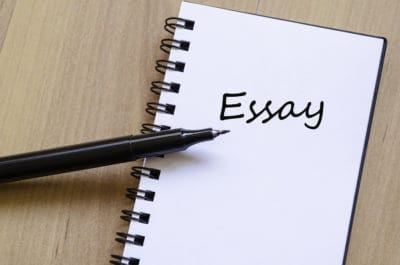
You’ve probably seen many essay guides and articles, and I don’t want you to read them anymore. I’ve done my best to collect all the specific essay types and tips in one place. You can save it, and you won’t have to google “how to write my essay” anymore.
If you’re an extremely responsible student and don’t care about other spheres of your life much, then you should do every assignment by yourself to get high grades. However, if obligatory disciplines seem boring to you, forget about hours of cramming. Place your order here and get cheap custom essays at affordable prices.
Okay, less talking, more doing. Let’s move forward to the comprehensive essay guide:
1. Analytical Essay
This is one of the most popular essay types, and is frequently assigned to students. In an analytical essay, you have to provide an in-depth analysis of a specific phenomenon or event using primary and secondary sources.
Analytical essays are aimed at evaluating students’ analytical and research skills. When you compose such an essay, you should look at the topic from different perspectives so that your conclusions won’t be superficial.
There are a few tips that might be helpful while writing an analytical essay:
- Narrow your topic: a 2-3 page essay isn’t enough to analyze a global problem, but it’s enough to take a closer look at a certain aspect.
For example, you shouldn’t pick the topic of the moral problems in “Hamlet” as it’s too broad. So, you should narrow it down to the following: the problem of loyalty in “Hamlet”; or, the problem of power in “Hamlet.”
- Make it original: don’t repeat the same truth for the hundredth time. Despite basing it on existing sources, your approach has to be original. Ask unexpected questions, look for the reasons, not for the consequences, and think outside the box.
2. Argumentative Essay
An argumentative essay, also known as a persuasive essay, is aimed at proving your point of view on a particular topic. You have to use your logical reasoning to find the most convincing arguments and put them in the right order.
Your main purpose isn’t only to convince the reader that your point of view is correct, but that other points of view are weak and unjustified. You shouldn’t accuse the opposite viewpoint of being a fallacy without strong arguments. Otherwise, you’ll seem unfair and baseless. Follow these tips to make your argumentative essay more persuasive:
- Use a circular composition: put your strongest arguments at the beginning and at the end of your article, keeping the argument that you consider not very convincing tucked in the middle.
- Avoid logical fallacies: they’ll make your arguments sound fictitious. You may find a list of common logical fallacies on the internet, and you can check each of your essays.
- Use different types of arguments: use statistics, proven facts, real-life examples, etc.
3. Definition Essay

If your discipline is associated with a wide range of complex concepts, sooner or later, your teacher will assign you to compose a definition essay. This essay type helps students to present a complex concept from various perspectives to simplify understanding.
As a rule, you should analyze a concept from the historical perspective (who offered this term, how it was used and how it is used now, etc.), describe each element of the whole, and present a range of definitions offered by reliable sources.
Here are a few recommendations on this essay type:
- Present all existing meanings of this concept: don’t limit yourself to the most common meaning. When it comes to complex concepts, there are always some additional interpretations.
- Use simple and concise wordings: the primary purpose of the definition essay is to make everything clear. Don’t confuse your readers with numerous complex words and terms when it’s possible to avoid them.
4. Cause and Effect Essay
Everything in our world is connected, and the main purpose of cause and effect essays is to reveal these connections and analyze them. Some connections are obvious, and for others, you should dig deep.
You’ll frequently face the need to compose cause and effect essays for your history classes, as each historical event has its reasons and consequences.
Your cause and effect essay might have an analytical or argumentative character. In the analytical one, you should present all possible reasons and consequences with no preferences. In the argumentative type, you pick the most significant reasons and results and prove that they played a decisive role.
If everything is clear, let’s move on to the most important cause and effect essay rule:
- Don’t be naive: sometimes, we want to justify other people or their actions with vague statements, such as “that was fate” or “that must have happened.” Don’t fall into this trap, as every action has its reason – even the most outrageous. And you have to find it.
5. Compare and Contrast Essay
All is known by comparison. You can’t know for sure whether you’re strong, smart, or handsome without comparing yourself to other people. The basic principle of compare and contrast essays is to see a certain object or phenomenon from the perspective of another object or phenomenon and compare them.
This approach allows us to notice unexpected and essential details that aren’t available during the standard analysis. The most difficult task is to find similarities between the objects that seem completely different and to find differences between similar ones.
However, a good comparison may give you great results. So, here are a few tips:
- Don’t put everything together: firstly, find similar traits, and then present dissimilarities, or vice versa. Let your readers follow your thoughts without confusion.
- Make a table: before writing your compare and contrast essay, create a table where you can write all the similarities and differences. In such a way, you won’t forget anything.
6. Narrative Essay

If you enjoy telling the stories, then narrative essays should be your favorite type of academic papers. A narrative essay is, basically, a story about a particular event, series of events, person, place, etc. It should have a story line, even though you don’t have to develop a wide range of complex characters. As a rule, you tell the story from your life, and the main hero is you.
Narrative essays require both writing and creative skills. A bunch of plain facts without emotions and vivid details can’t be considered a well-written story. Add details that will help your readers to see the things through your eyes and understand your feelings better.
The following tips will help you:
- Don’t lie:a narrative essay isn’t a fantasy. And if your audience catches you lying, they definitely won’t like it.
- Pick a narration type and stick to it: you may use both the first-person and the third-person perspectives, but don’t put them in the same text.
7. Expository Essay
As for me, that’s the easiest essay type, especially if you like the researching process. There is nothing exciting or challenging about composing expository essays. Your only task is to gather as much information on your topic as possible, structure this data, and write it down.
However, you should be very picky when it comes to the sources. Firstly, you have to be 100% confident about their reliability. Forget about Wikipedia, personal blogs, and commercial websites. Secondly, you may find controversial statements about the same phenomenon. In that case, you’ll have to find out why different interpretations have appeared and put this explanation in your essay too.
I hope that you’ll find these tips helpful:
- Choose relevant sources: everything changes, and the studies that were written before 2014 might not be relevant anymore. However, you can make an exception for history essays.
- Avoid subjectivity: in your expository essay, you should present raw facts exclusively. Opinions aren’t allowed.
8. Critical Essay

A critical essay is a summary and analysis of someone else’s work. You can write a critical essay about an article, movie, painting, performance, another essay, novel, story, etc. The main difficulty is to remain objective and not allow personal emotions to influence your writing. Of course, you should express your opinion, but it has to be based on facts, not on your feelings.
Teachers often assign their students critical essays when they want to make sure that they have read/watched a book/movie and understood it. You may include citations of other critics in your text to prove a certain point, but you shouldn’t base your entire essay on someone else’s critical article.
Use the following tips while writing your critical essay:
- Watch/read it twice: when you read a book or watch a movie for the first time, you get only a general impression. To write a high-quality critical essay, you should pay attention to the details, so watch/read it twice.
- Take notes: human memory isn’t perfect, and you’ll probably forget important details if you don’t write them down during the reading or watching process.
I haven’t included in my essay guide some helpful but well-known tips, such as “check your grammar mistakes” or “stick to the required formatting style.” As for me, these recommendations are too banal to be in my article. If you still need more helpful hints, then google them. I’m sure that you’ll find a dozen websites with this information.
Anyway, good luck!


